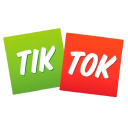How Our AI SaaS Crossed $10K MRR In Less Than 3 Months
Hello! Who are you and what business did you start?
Hi everyone, I'm Andrew, and along with Michael, I'm one of the co-founders of BasedLabs. We started the company together in December 2023, and now, just four months later, we've made some exciting progress.
Our primary product is a comprehensive, all-in-one AI Generator. To attract customers, we've built a handful of free AI tools and apps, such as Face Swap, AI Character Generator, AI Art Generator, and Character Voice Generator. These tools aim to add value to users, ranging from advanced video creators and AI artists to complete beginners using AI for the first time.
In just a short period, we've managed to achieve a MRR of $10,000 and have garnered about 150,000 user signups, all while spending less than $500 in total on marketing.

Download the report and join our email newsletter packed with business ideas and money-making opportunities, backed by real-life case studies.

Download the report and join our email newsletter packed with business ideas and money-making opportunities, backed by real-life case studies.

Download the report and join our email newsletter packed with business ideas and money-making opportunities, backed by real-life case studies.

Download the report and join our email newsletter packed with business ideas and money-making opportunities, backed by real-life case studies.

Download the report and join our email newsletter packed with business ideas and money-making opportunities, backed by real-life case studies.

Download the report and join our email newsletter packed with business ideas and money-making opportunities, backed by real-life case studies.

Download the report and join our email newsletter packed with business ideas and money-making opportunities, backed by real-life case studies.

Download the report and join our email newsletter packed with business ideas and money-making opportunities, backed by real-life case studies.




































